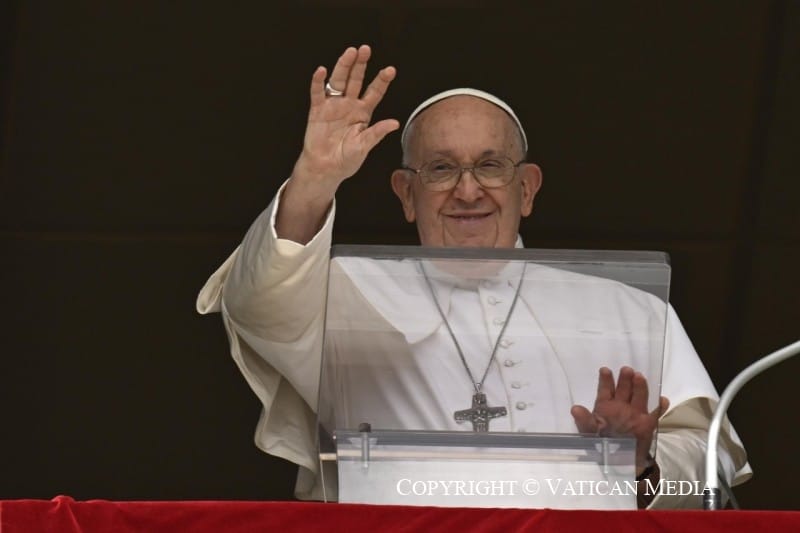At 12 noon today, the Holy Father Francis looked out of the studio window in the Vatican Apostolic Palace to recite the Angelus with the faithful and pilgrims gathered in St. Peter’s Square.
These were the Pope’s words in introducing the Marian prayer:
Before the Angelus
Dear brothers and sisters, buongiorno!
Today, the Gospel talks to us about forgiveness (cf. Mt 18:21-35). Peter asks Jesus: “Lord, how often shall my brother sin against me, and I forgive him? As many as seven times?” (v. 21).
Seven, in the Bible, is a number that indicates completeness, and so Peter is very generous in the assumptions of his question. But Jesus goes further, and answers him: “I do not say to you seven times, but seventy times seven” (v. 22). He tells him, that is, that when one forgives, one does not calculate; that it is good to forgive everything, and always! Just as God does with us, and as those who administer God’s justice are required to do: forgive always. I say this a lot to priests, to confessors: always forgive, as God forgives.
Jesus then illustrates this reality through a parable, which again has to do with numbers. A king, after being implored, forgives a servant the debt of 10,000 talents: it is an excessive, immense value, ranging from 200 to 500 tons of silver: excessive. It was an impossible debt to settle, even by working a lifetime: yet this master, who recalls our Father, forgives it out of sheer “pity” (v. 27). This is God’s heart: he always forgives, because God is compassionate. Let us not forget how God is: he is close, compassionate and tender; this is God’s way of being. Then, however, this servant, whose debt has been forgiven, shows no mercy towards a fellow servant who owes him 100 denarii. This too is a substantial sum, equivalent to about three months’ wages – as if to say that forgiving each other costs money! – but not at all comparable to the previous figure that the master had forgiven.
Jesus’ message is clear: God forgives incalculably, exceeding all measure. This is how he is; He acts out of love, and gratuitously. God is not bought, God is free, he is all gratuitousness. We cannot repay Him but, when we forgive a brother or a sister, we imitate Him. Forgiving is not, therefore, a good deed that we can choose to do or not do: forgiving is a fundamental condition for those who are Christians. Every one of us, in fact, is “forgiven”: let us not forget this, we are forgiven, God gave his life for us and in no way can we recompense his mercy, which he never withdraws from his heart. However, by corresponding to his gratuitousness, that is, by forgiving one another, we can bear witness to him, sowing new life around us. For outside of forgiveness there is no hope; outside of forgiveness there is no peace. Forgiveness is the oxygen that purifies the air of hatred, forgiveness is the antidote to the poisons of resentment, it is the way to defuse anger and heal so many maladies of the heart that contaminate society.
Let us ask ourselves, then: do I believe I have received from God the gift of immense forgiveness? Do I feel the joy of knowing that He is always ready to forgive me when I fall, even when others do not, even when I am not even able to forgive myself? He forgives: do I believe that he forgives? And then: can I in turn forgive those who wrong me? In this respect, I would like to propose a little exercise to you: let us try, now, each one of us, to think of a person who has hurt us, and ask the Lord for the strength to forgive them. And let us forgive them out of love for the Lord: brothers and sisters, this will do us good; it will restore peace to our hearts.
May Mary, Mother of Mercy, help us to receive the grace of God and to forgive each other.










